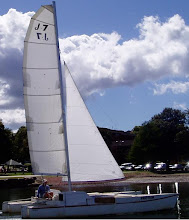a short digression, on how governments work:
this will chiefly be applicable to the english-speaking societies, although the principles are general. the norman conquest evolved into a parliamentary society, one in which the magnates met to discuss matters of general interest, under the nominal rule of the leading magnate, the king. this form continues today, although much has happened since king john was formally brought to heel. in britain, the monarch has sunk into decorative weakness, the house of lords also has little real power anymore. in the usa, the constitution has preserved the power of the king at the level enjoyed by george the third, and the senate remains the center of power. the u.s.a is much more a monarchy than britain, while both continually refer to themselves as 'democracies.'
the important point is this: the only voting either does, is for people, not principles. they are both governed by men, not law. the voting is not symptomatic of democracy, it is simply non-violent civil war, the selection of dukes/senators and king/presidents by counting ballots instead of bullets.
consequently,the government makes the law, tells the people what it is, and enforces compliance with police and army if required. this is why the notion that either is a society "governed by law, not men," is a non-sense. the law is whatever the government says it is.
the history of britain is typical of the human race: since man-kind took to farming and thereby created stores of food, parasite warriors have been living on the produce of farmers. the struggle between the warriors and farmers continues as the modern struggle between producer and taxer, a struggle organized and formalized by bureaucrats. it is vital to remember that the activities of society today, although rarely violent, are nonetheless about power. there is no reform or revolution without real shifting or transfer of power.
Monday, December 28, 2009
Subscribe to:
Post Comments (Atom)

No comments:
Post a Comment